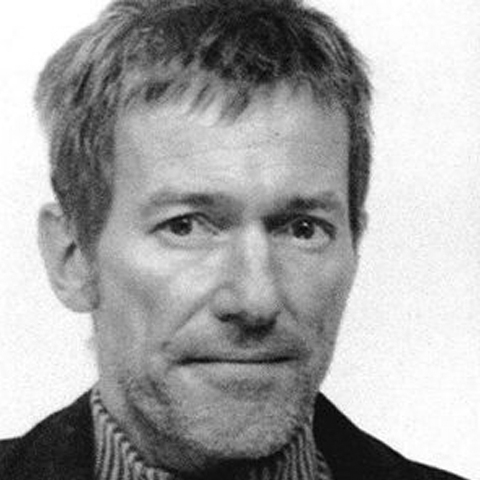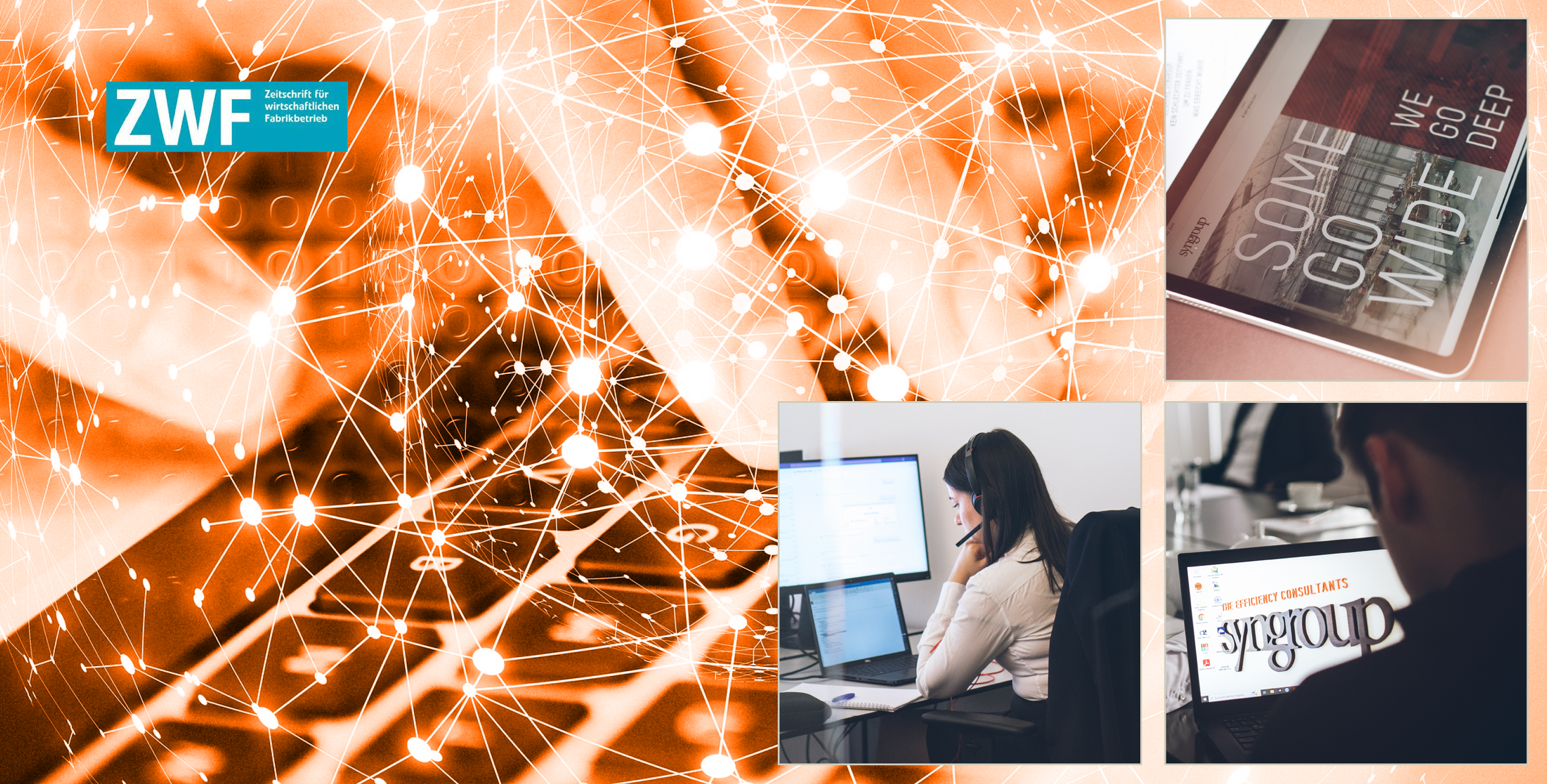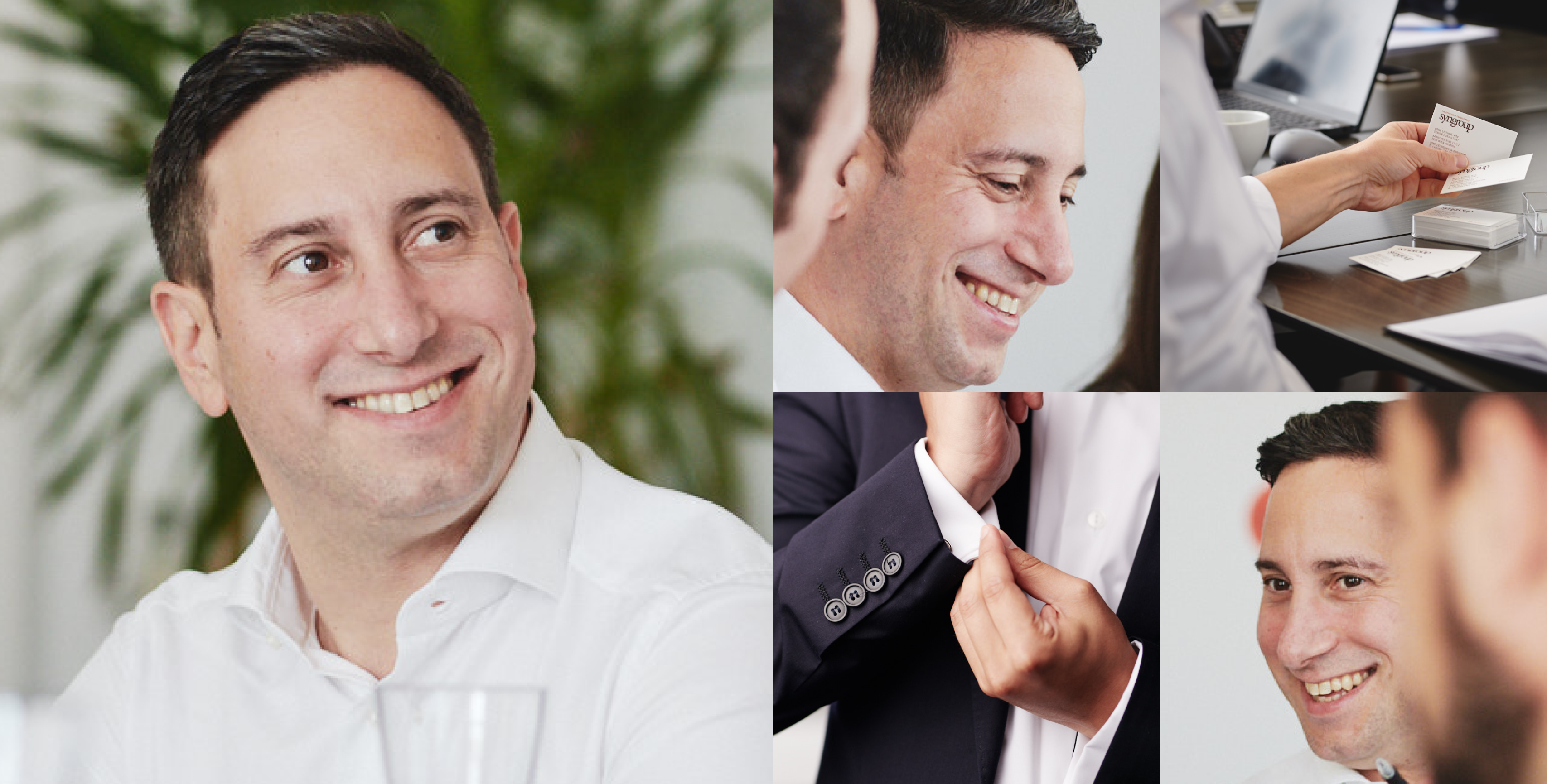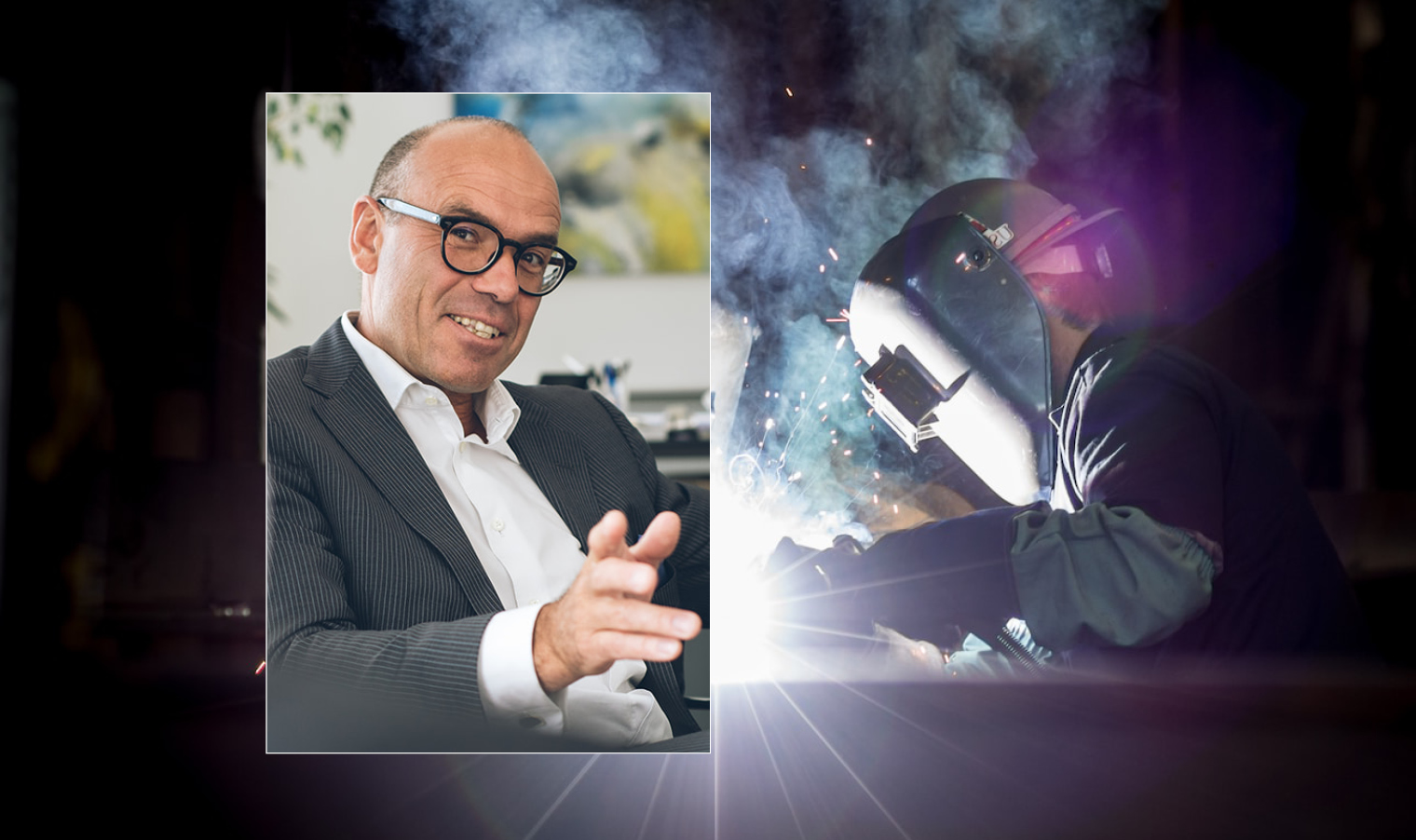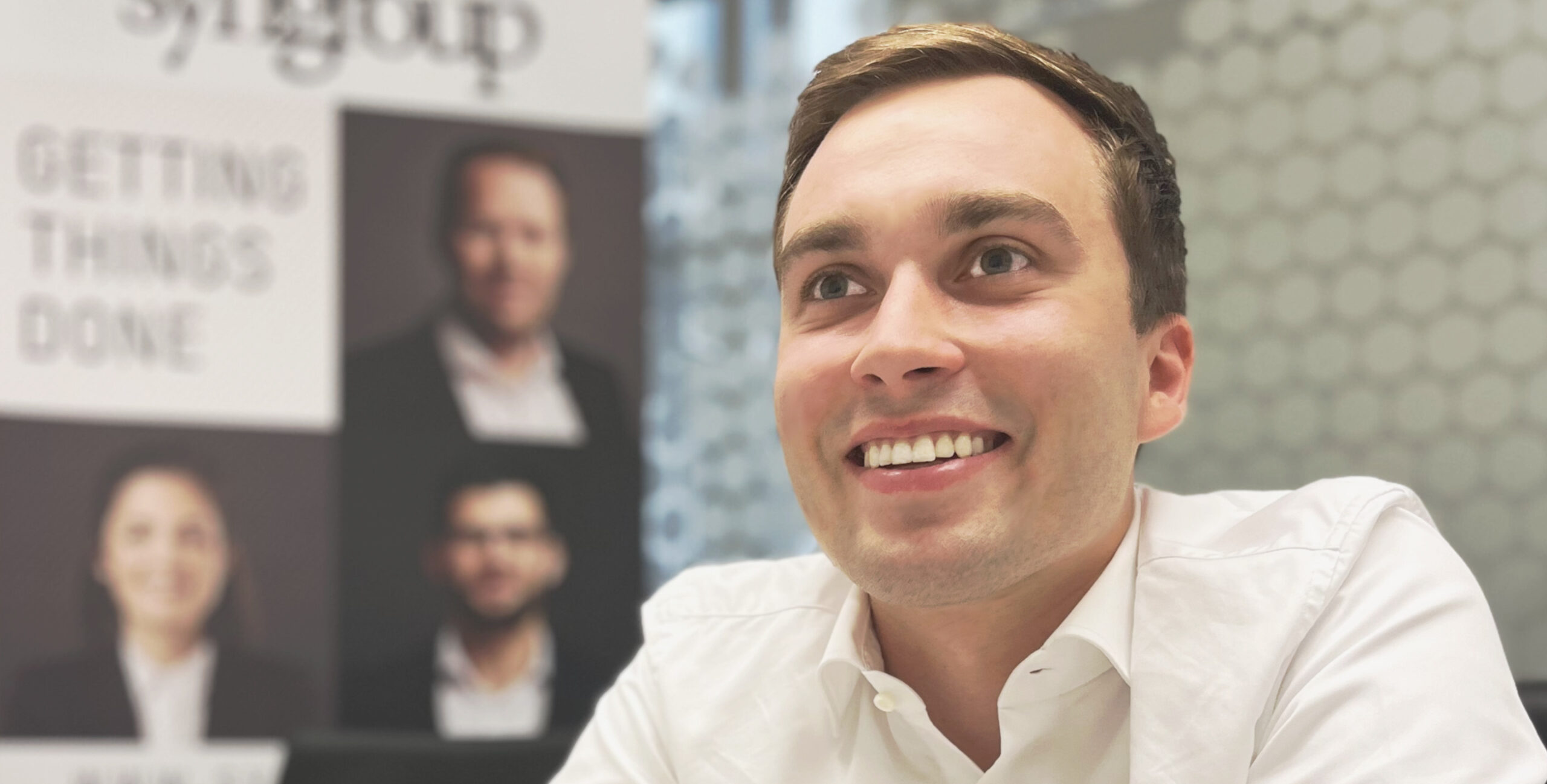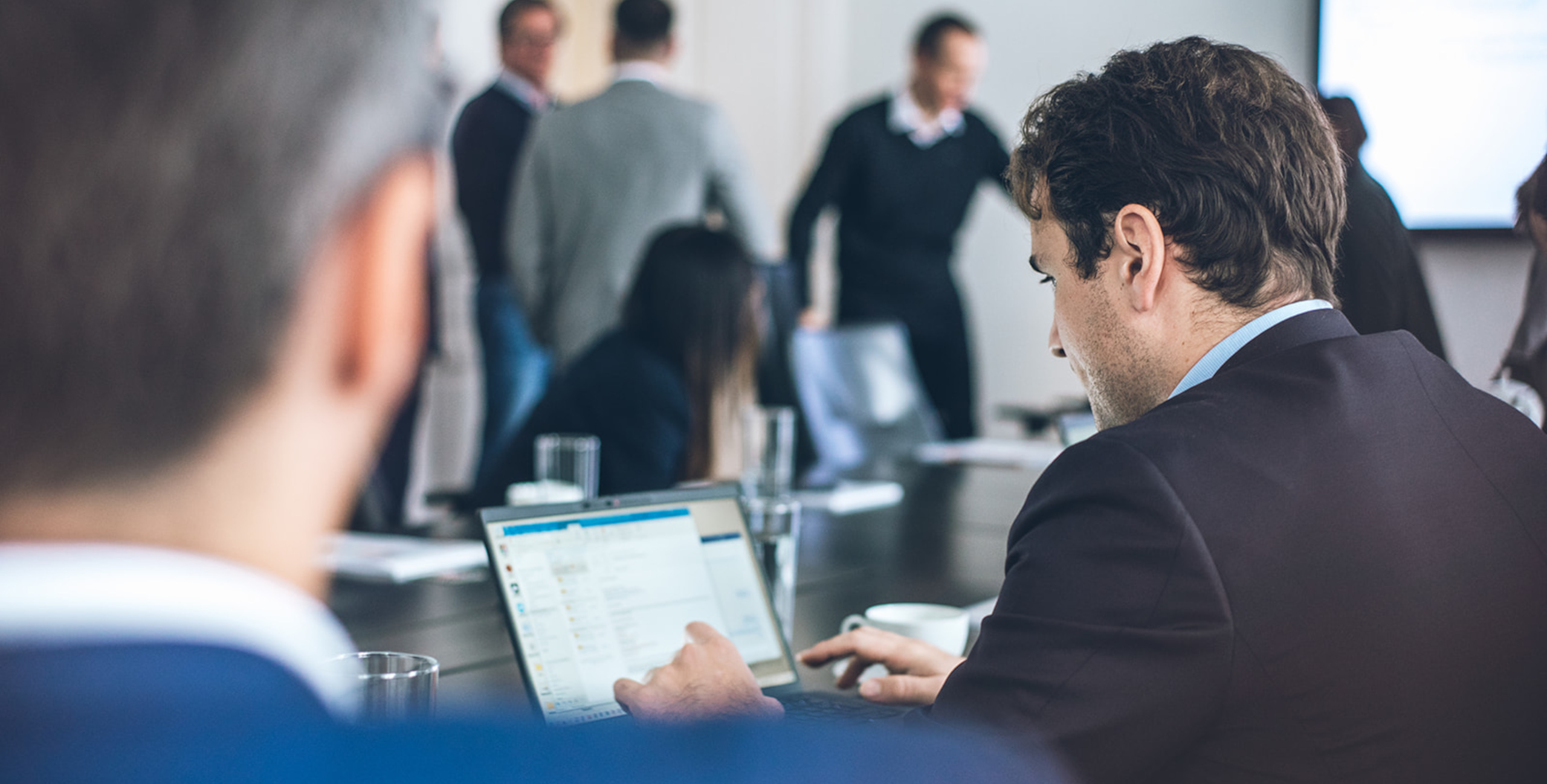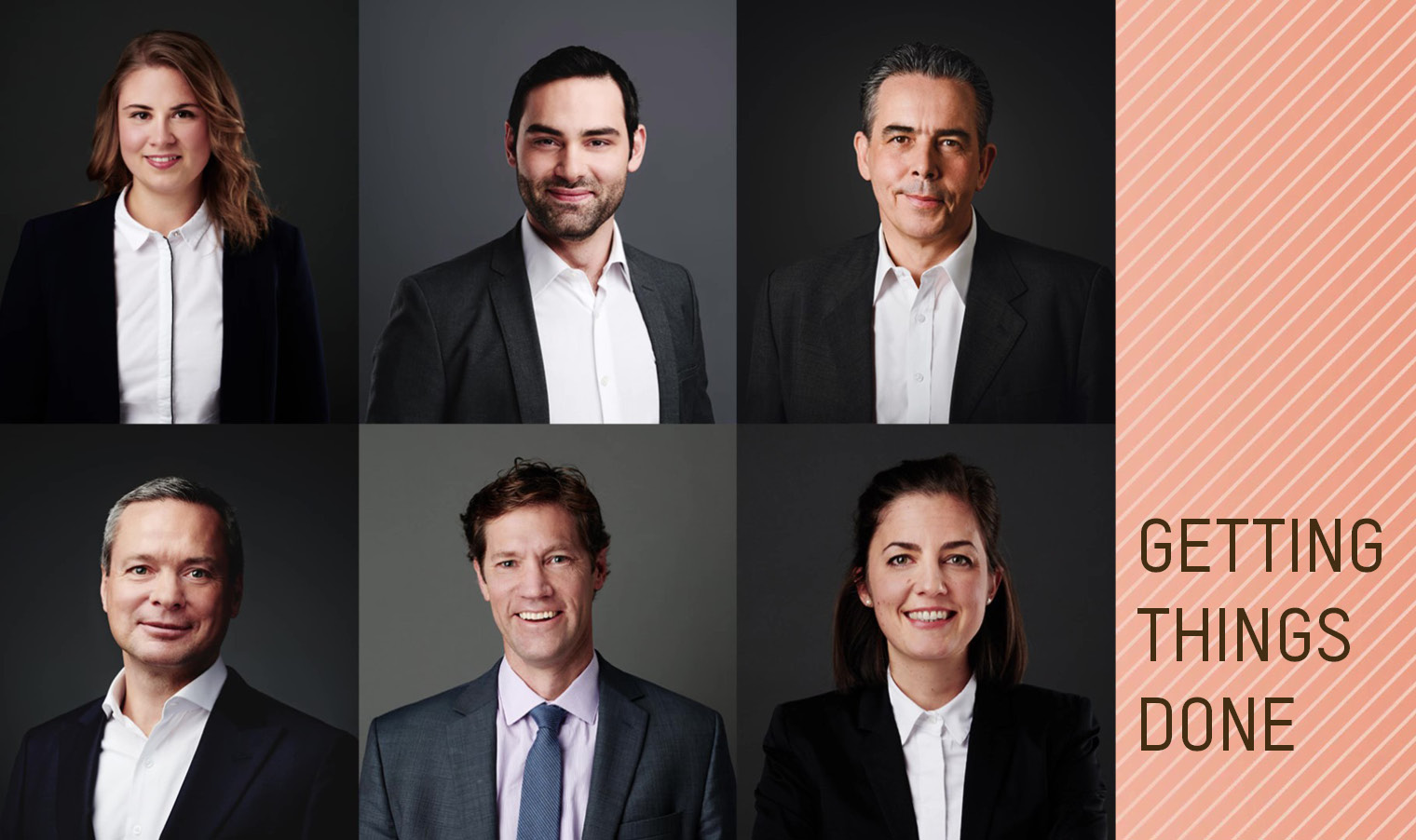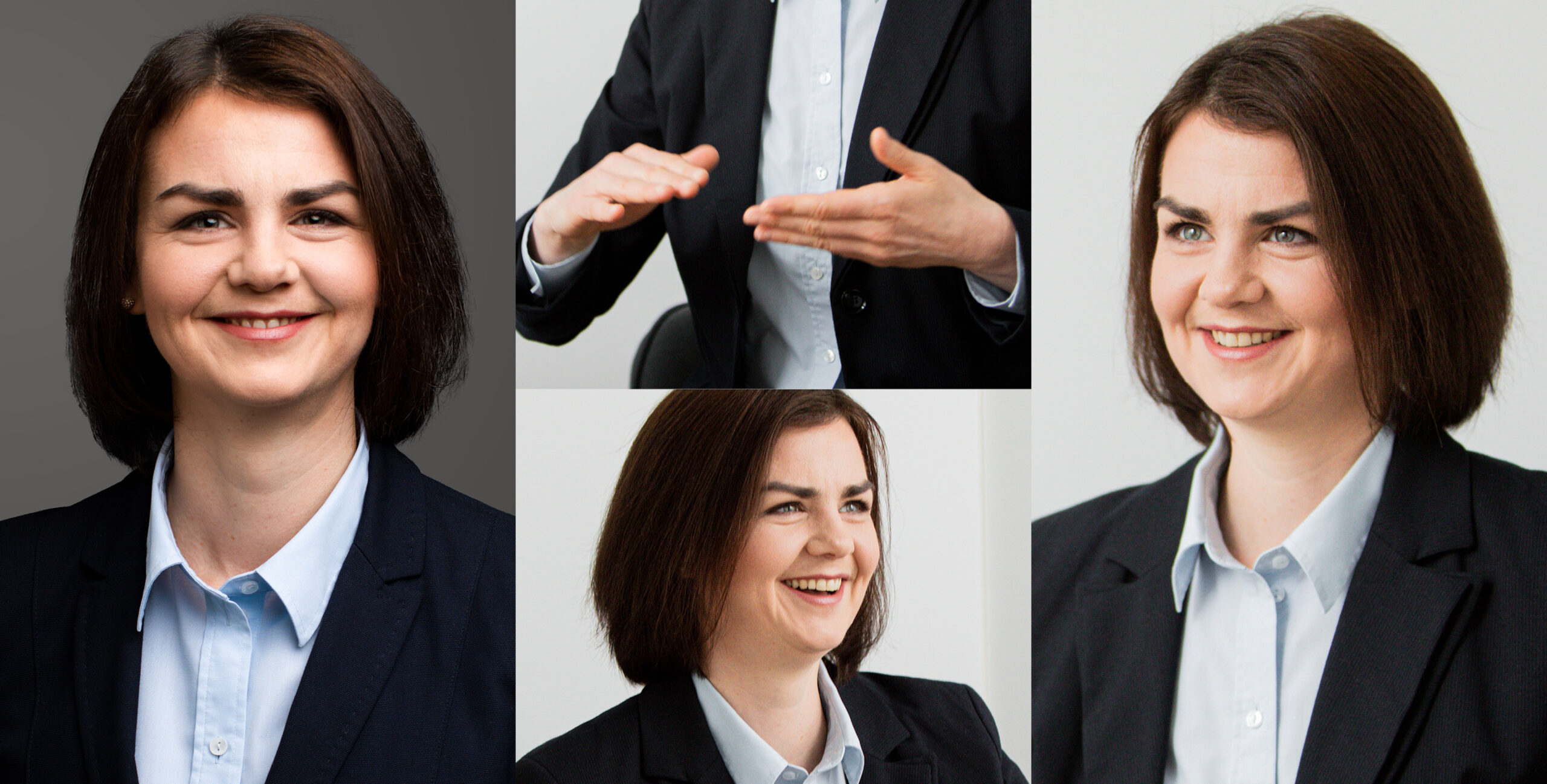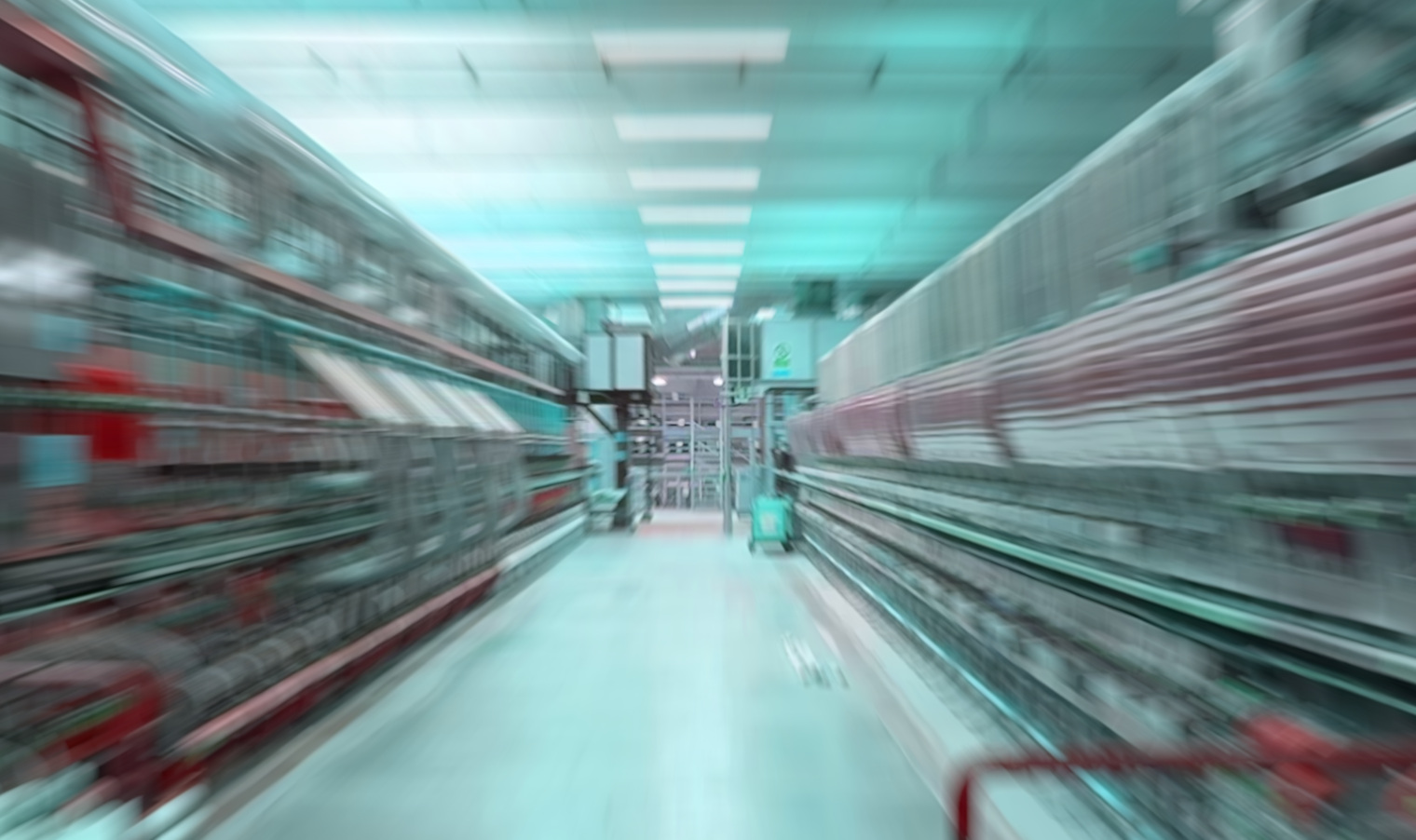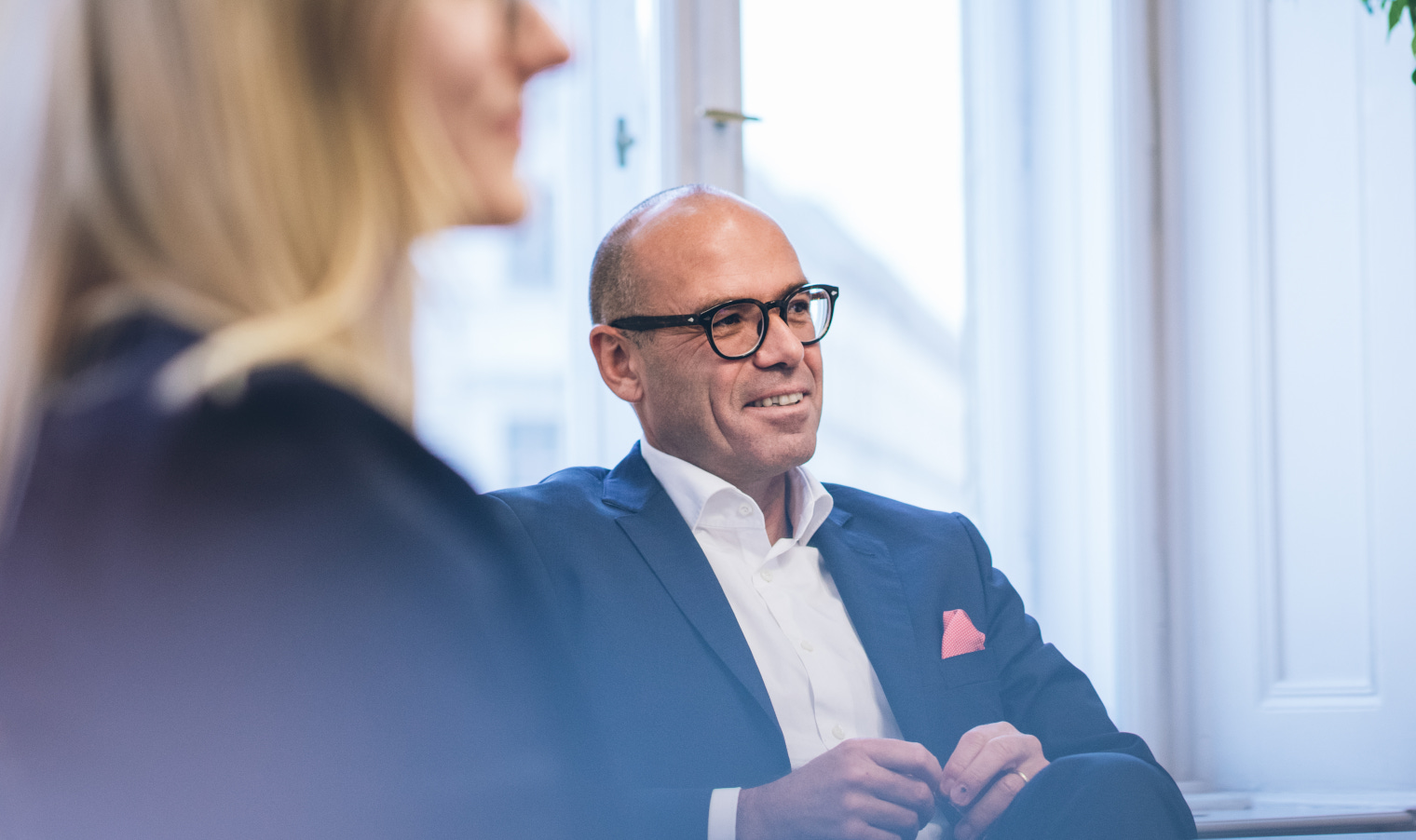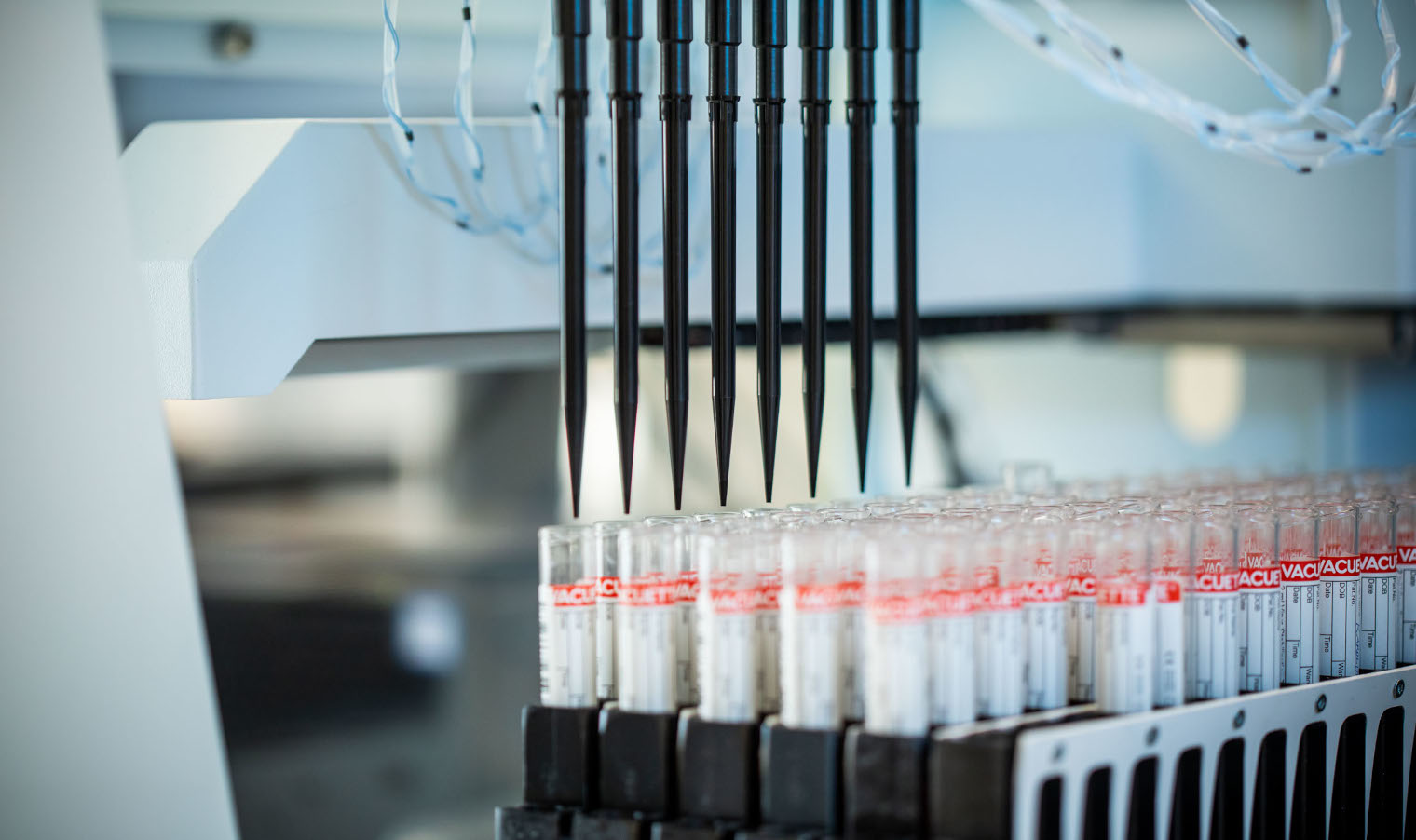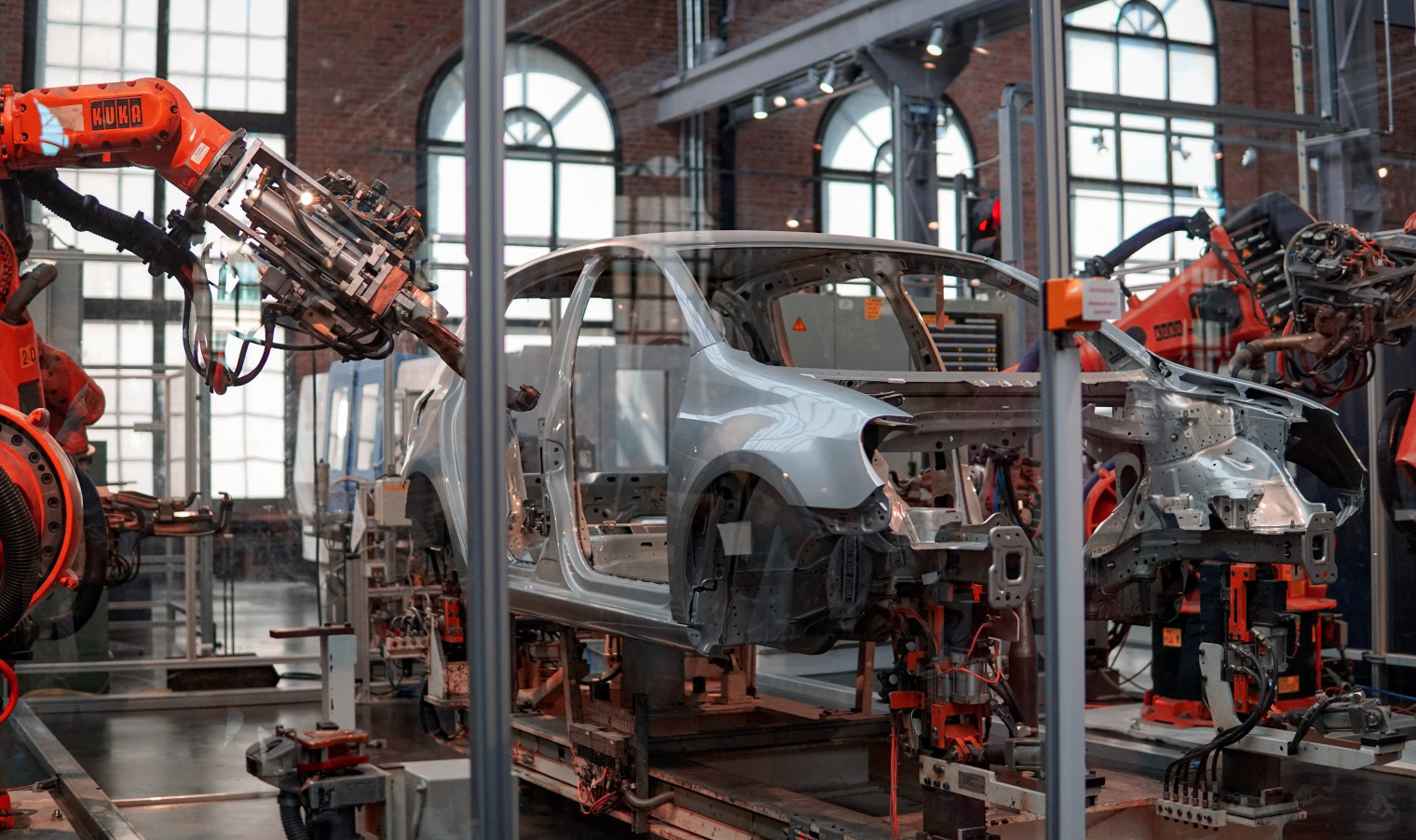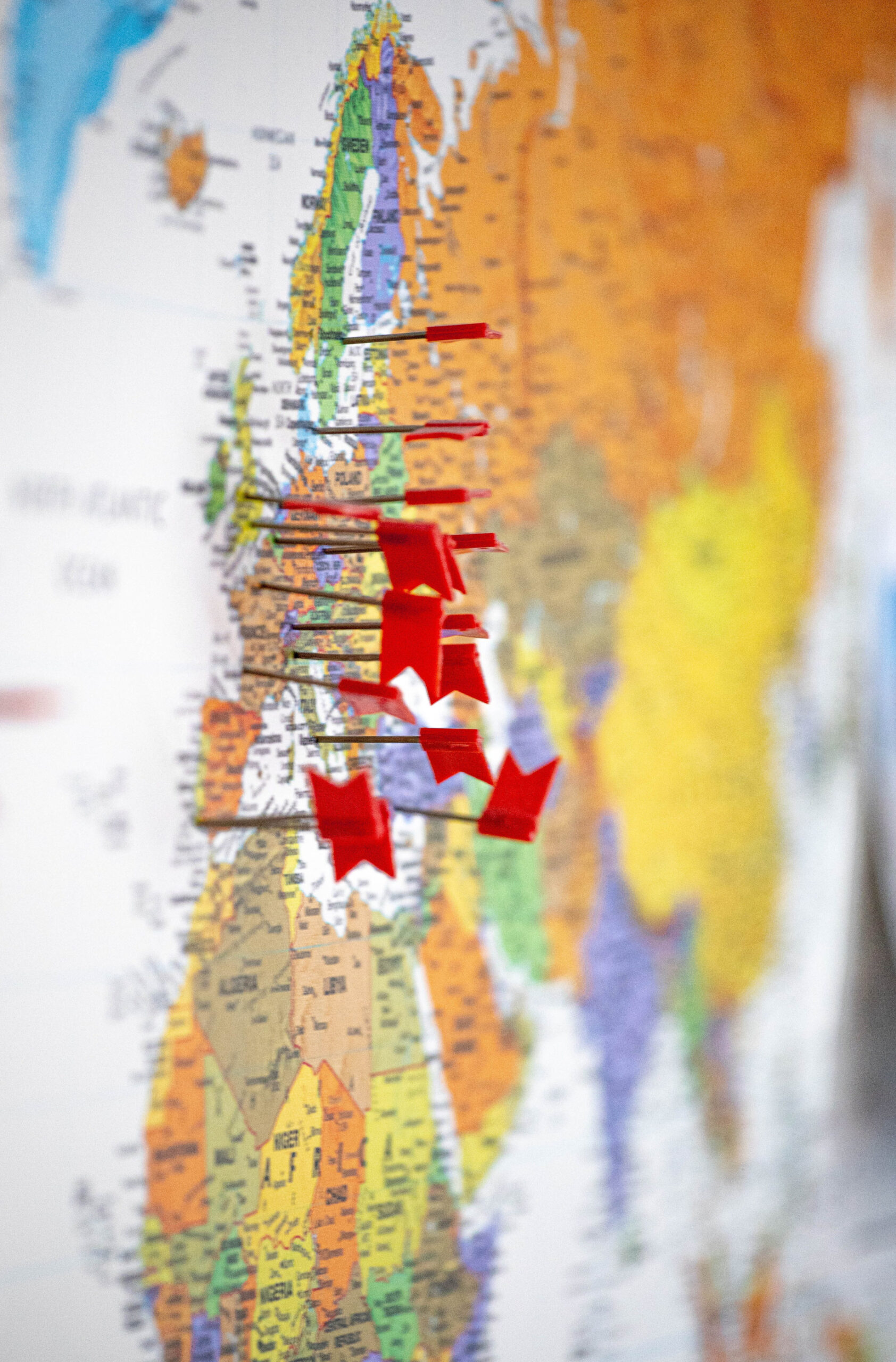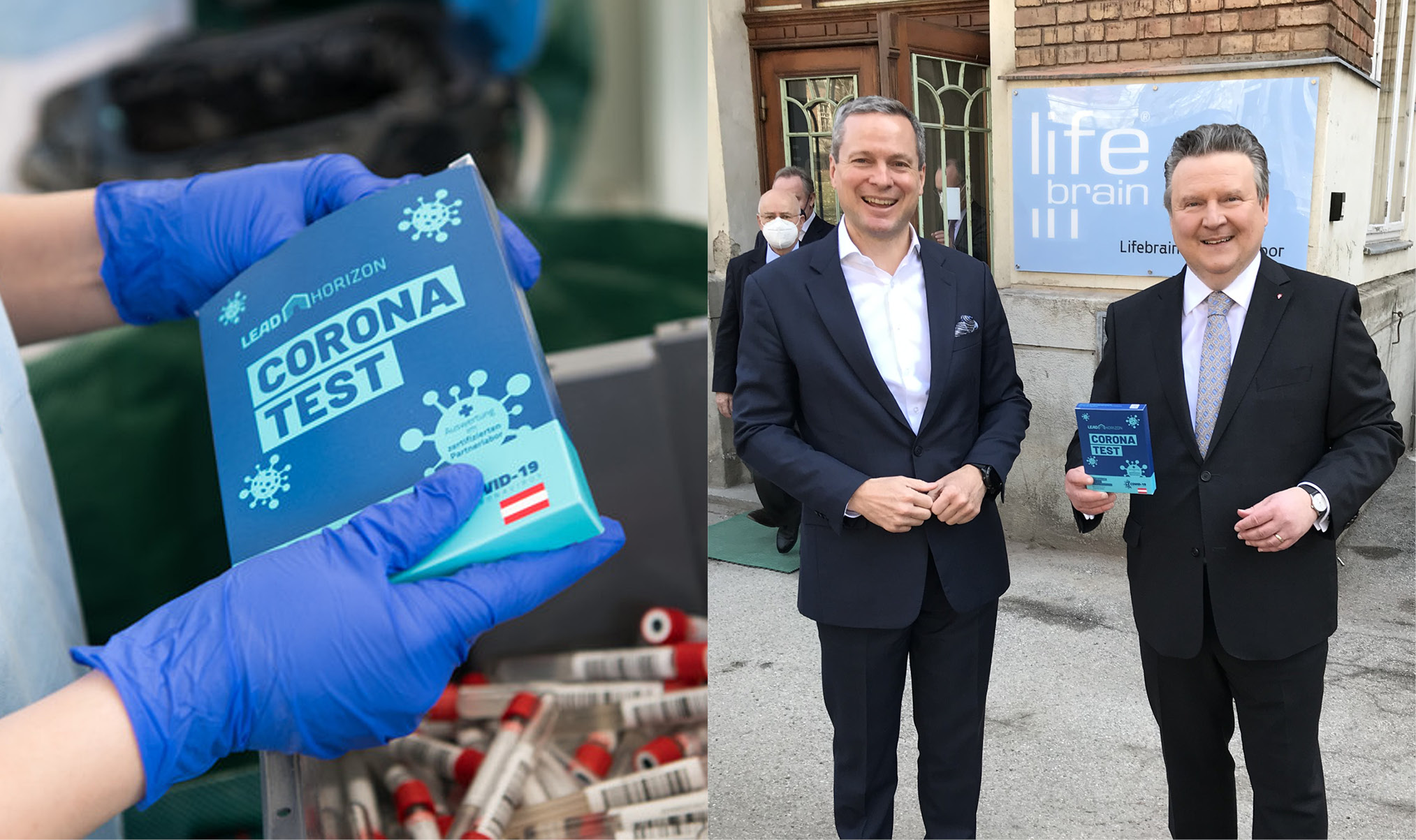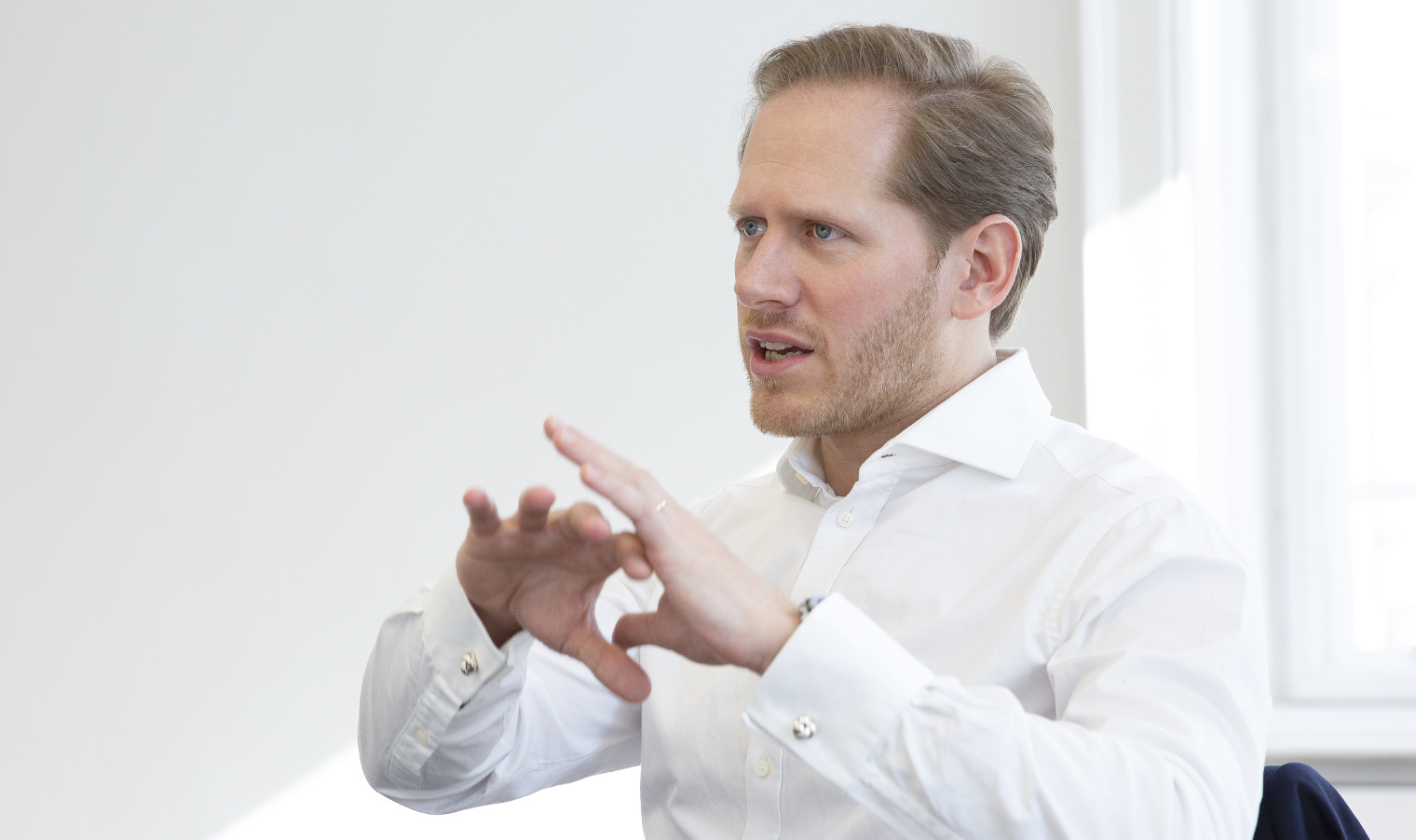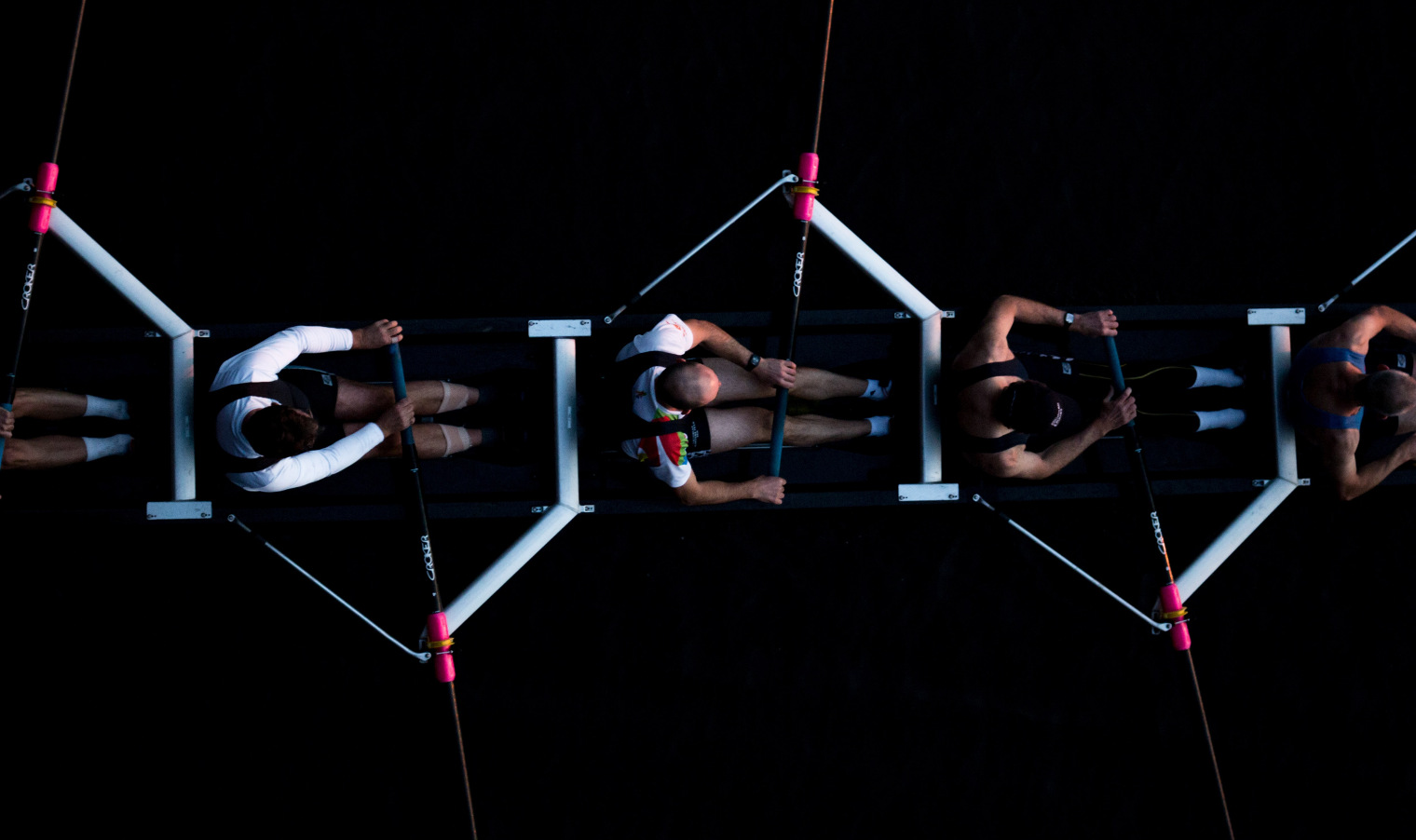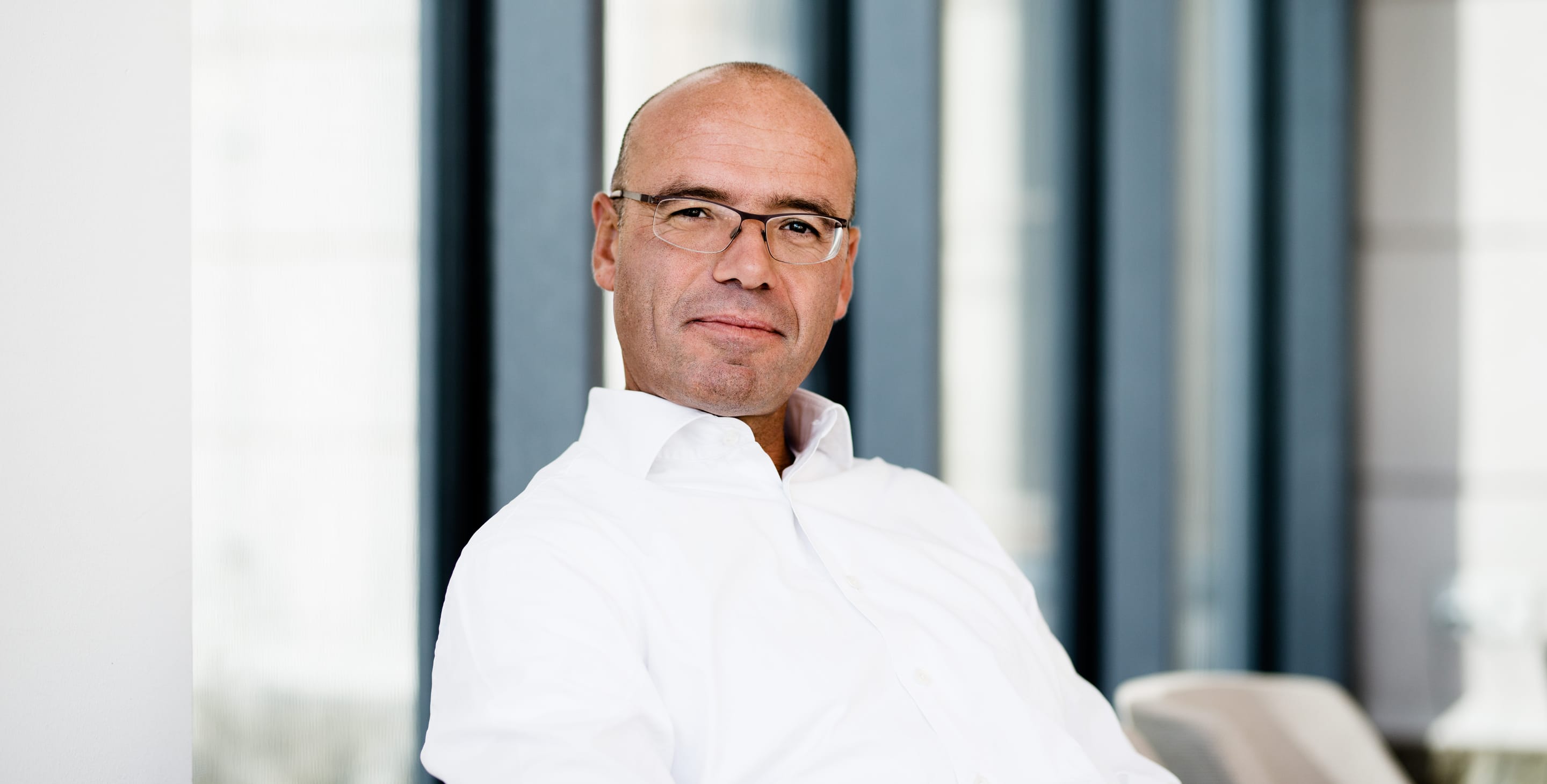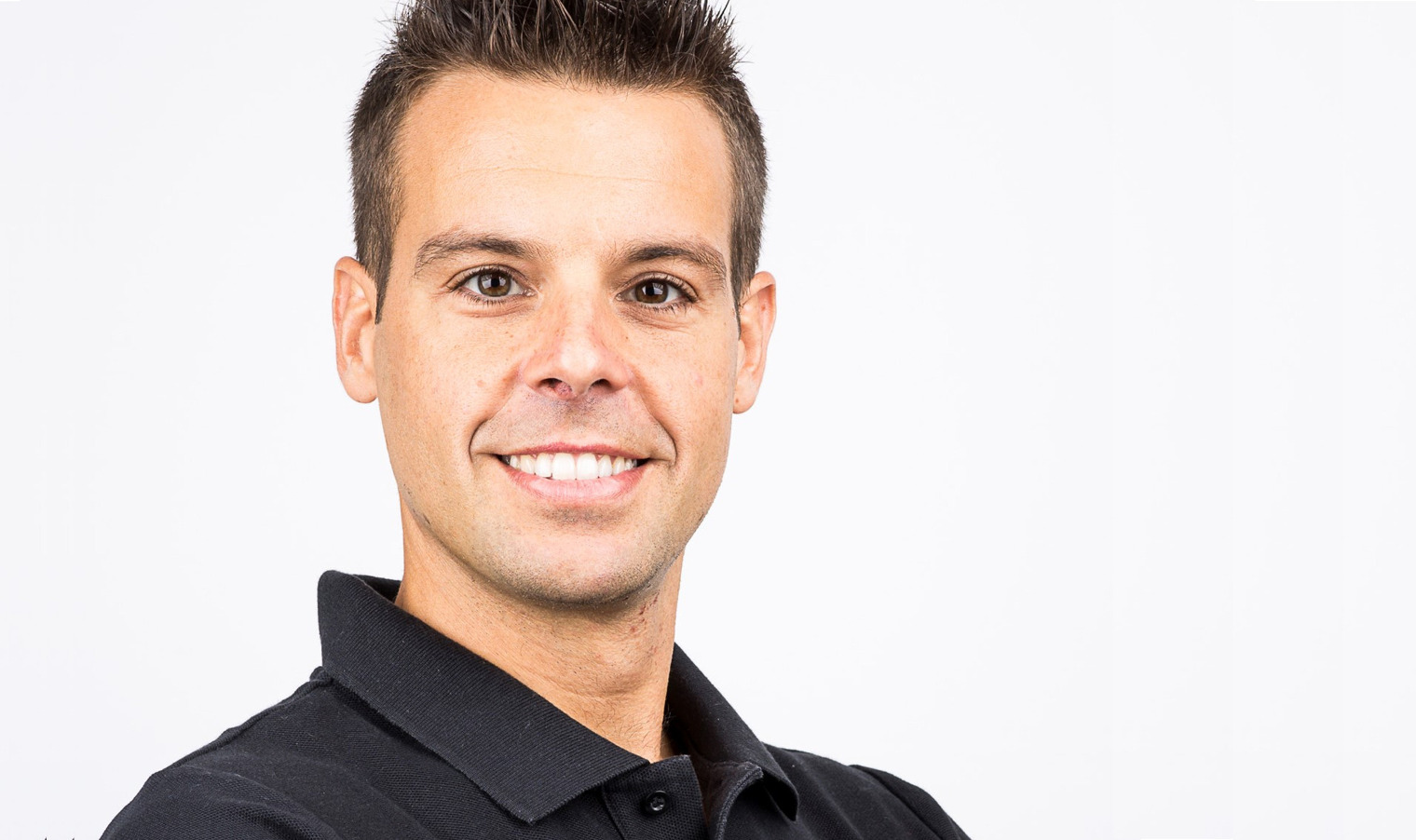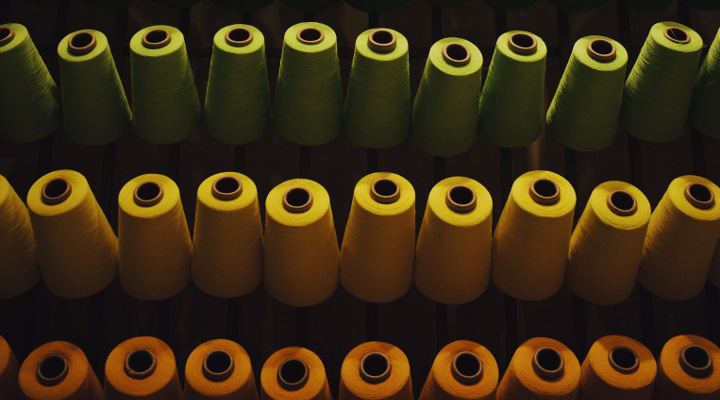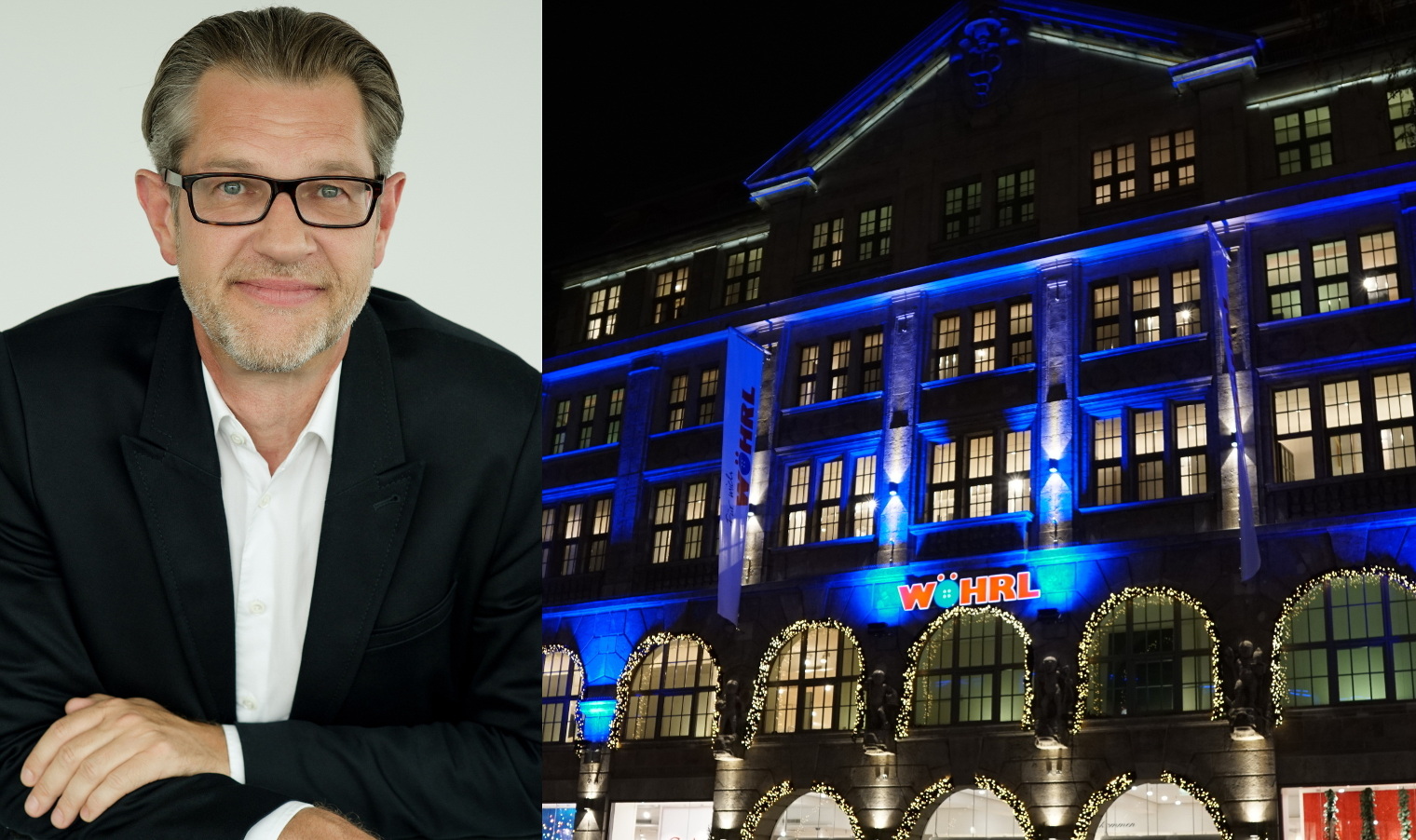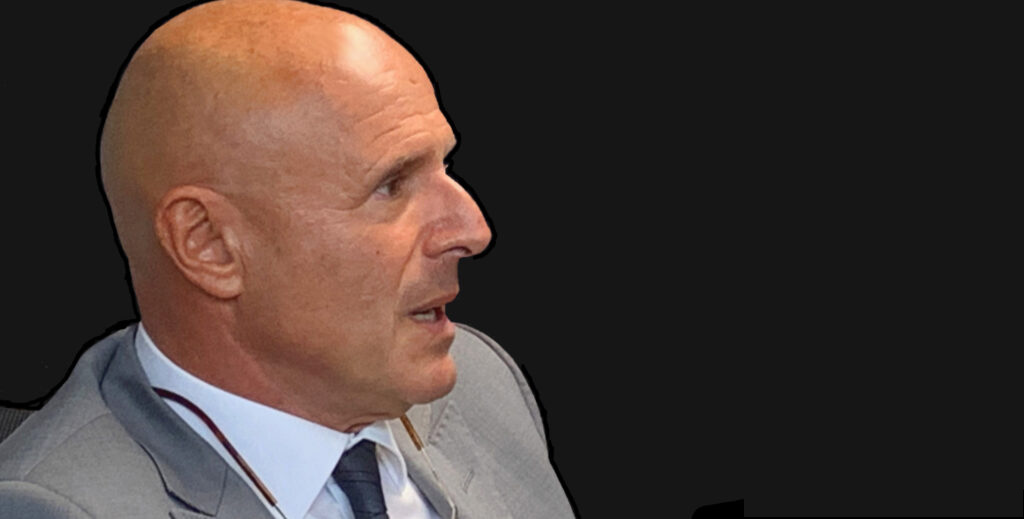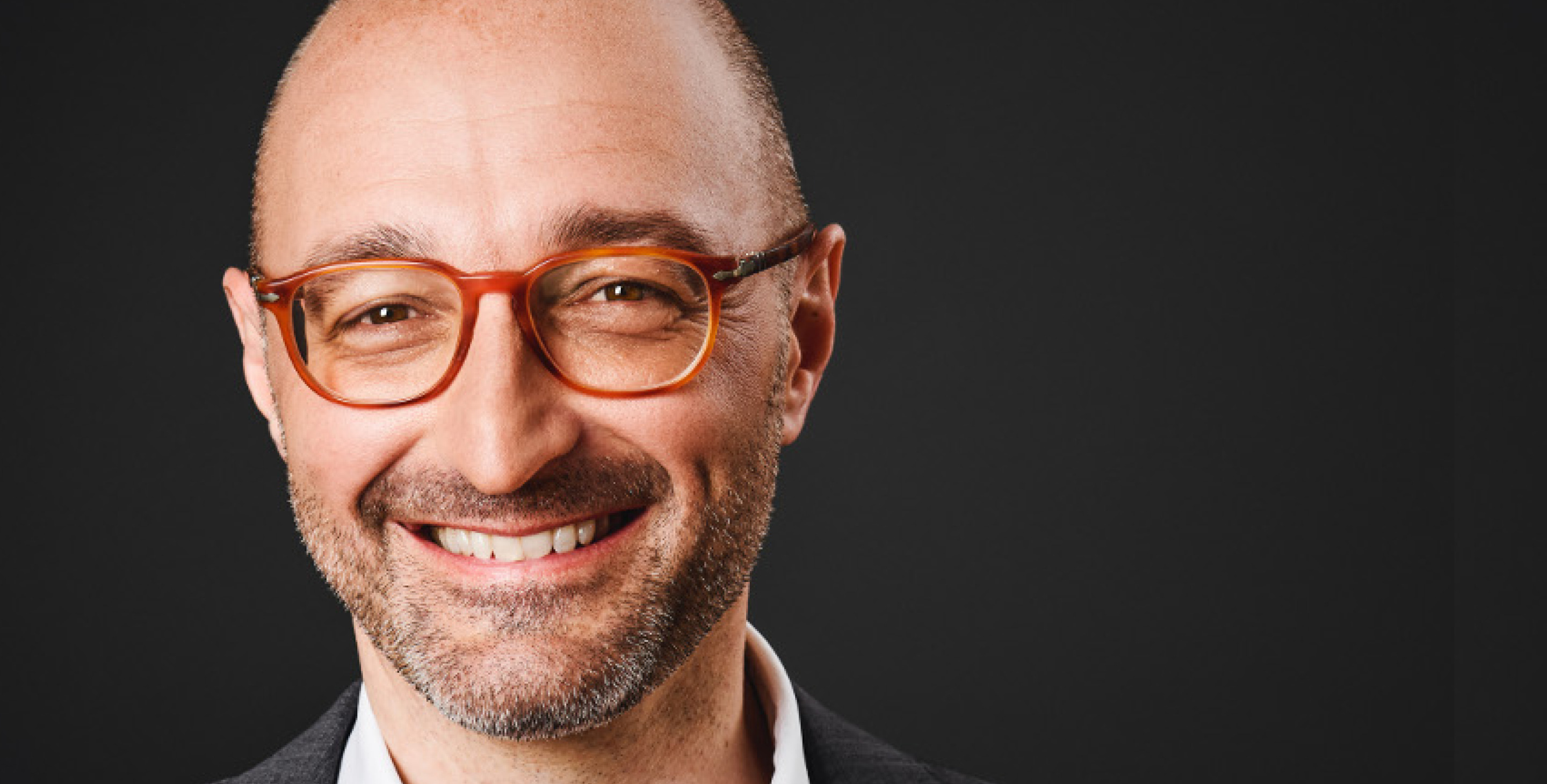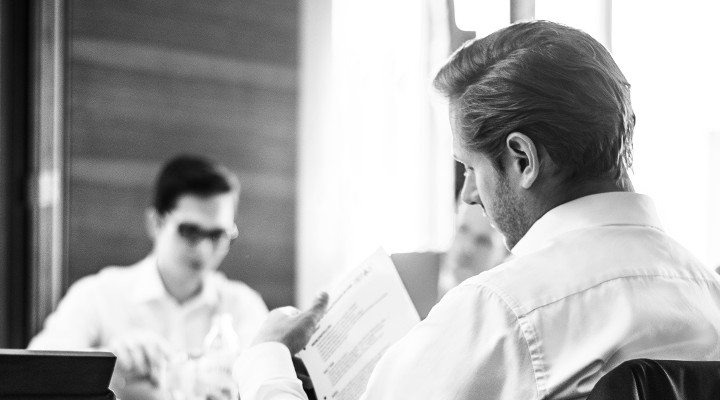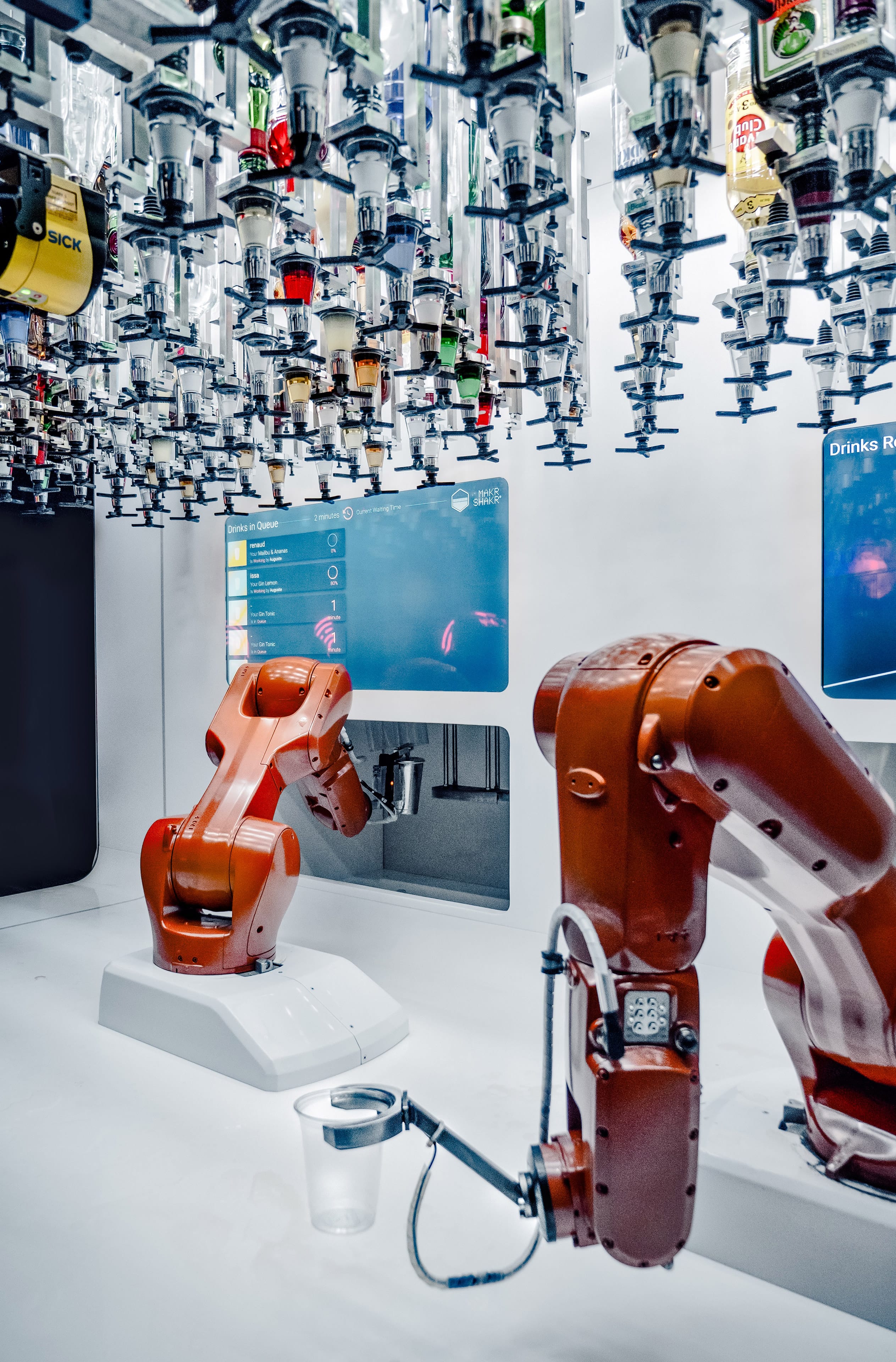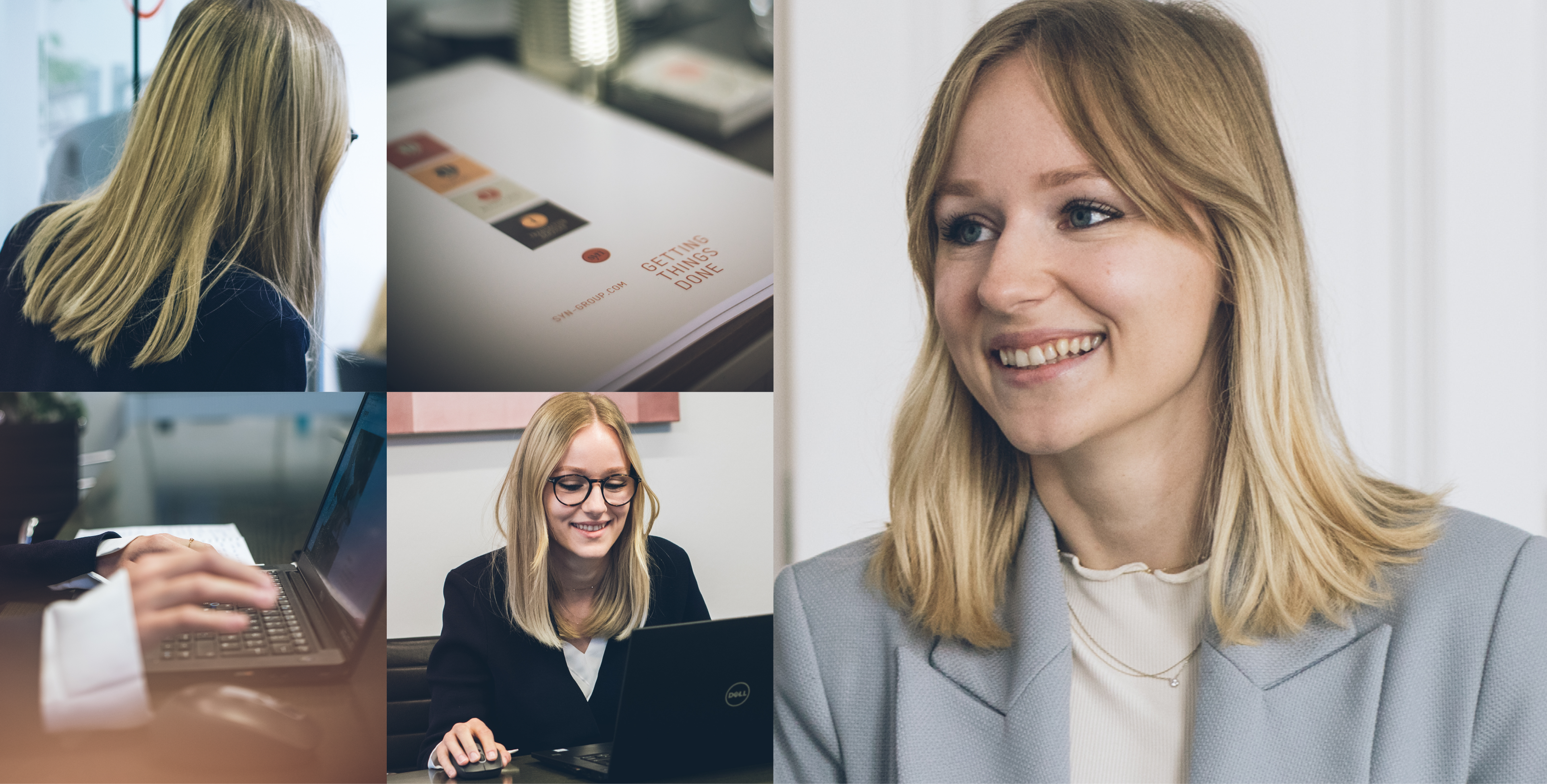
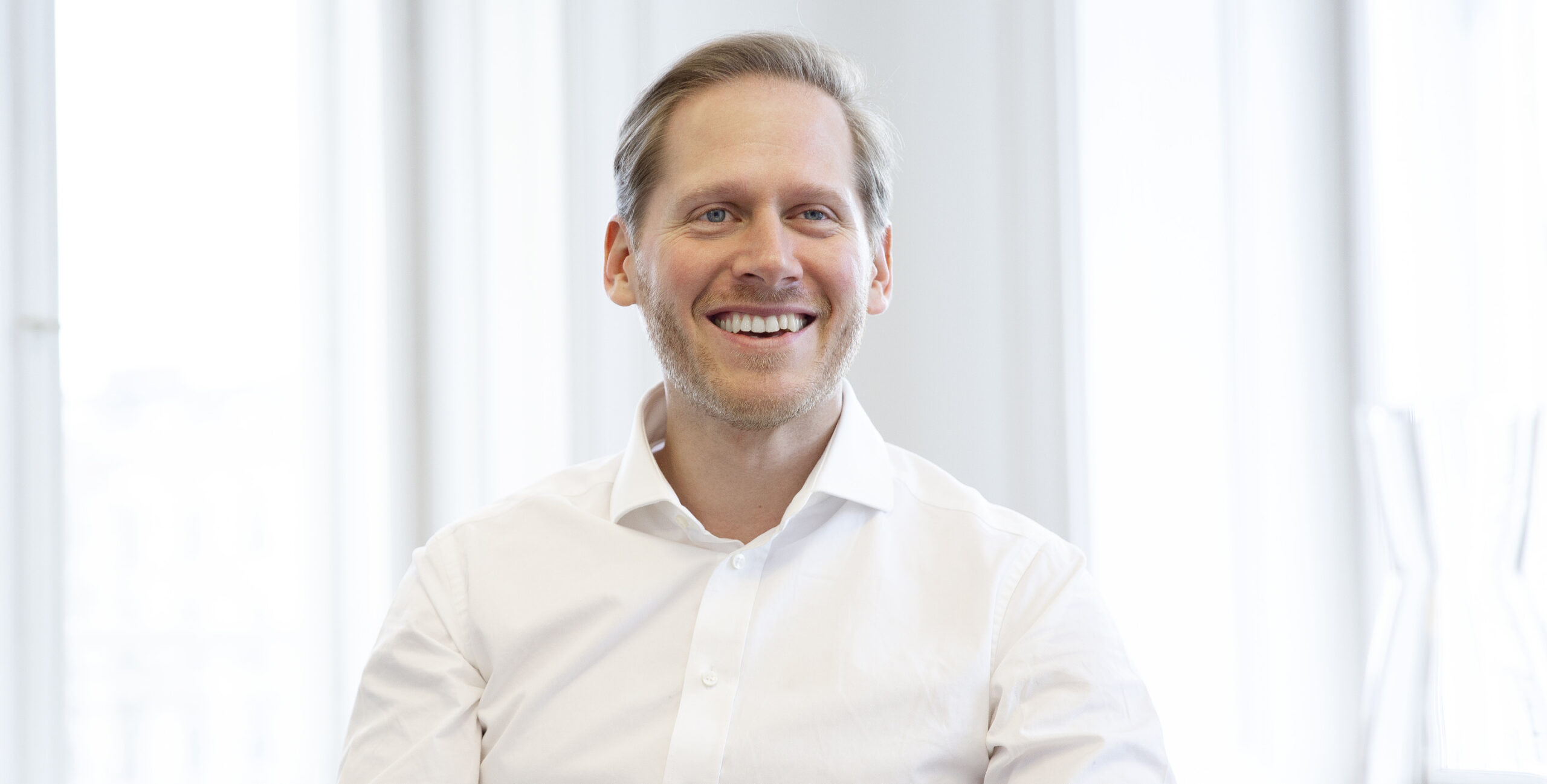
I studied business administration in the classical way. I started it because I wasn’t quite sure what else I should do. Unfortunately, chemistry, the subject I really wanted to study, didn’t work out as the average timeframe was 14 semesters, so I decided not to take this route. So I swapped my studies for work and earning money, but still deep down wanted to complete my studies but in a different format and went to a university of applied sciences.
This was a great fit because it suited my nature better.
I wouldn’t want to miss my time as a student, it was very exciting because I was also lucky enough to do great semesters abroad. Two internships showed me that there is much more to it than just business administration. With my current experience, I would probably persuade myself to study technical chemistry after all because I now know that business administration is not really a subject that you have to study. You can acquire an understanding of business administration through common sense; if you’re seriously interested, you’ll get it. That’s why today I would study something more scientific in some way.
In reality, no. But I generally have many different interests. Being good at many things has always been my approach. I’d rather do 20 things above average than just one thing perfectly. Maybe that reflects my character, which I think also fits well with this job. A good counsellor is not only able to see the problem, but also to look to the right and left and to quickly put himself in different situations.
It was a coincidence really. Because of my studies and my assignments abroad, I enjoyed working in the automotive industry, but that was during the financial crisis in 2008, when most of the automotive companies had a recruitment freeze, so I had to look for other options. Somehow I came across Syngroup. It wasn’t the consultancy per se that attracted me, but rather the company – Syngroup, which I had heard about through an acquaintance.
“This is a nice, relatively small troupe, but they have a good reputation in the industry, check it out.” So I did and I remember well: On December 21st, I went for an interview with Wolfgang Hillerbrand and Heinz Kailbauer. They made me feel so comfortable and I liked them straight away as we had similar interests and ideas.I think they must have liked be as well because: On 23 December, I had a contract on the table and I was excited to signed it immediately.
Well, it takes quite a bit of interest to do something like that. You know what consulting means: a lot of travelling, a lot of stress, a lot of different clients, and always difficult situations. But I was confident because of the interview and reassurance that I had received that I would do well. My family has always lived with the idea that work is not just gainful employment, but the defining part of your life. And you should definitely spend it in a way that makes you feel good.
Due to this attitude, I have often made decisions using my gut feel, which have always proved right. What I study, which degree programme I choose, whether I do UAS?, whether I go to this employer or that one – up to now, my gut feeling has rarely been wrong and I think 10 years at Syngroup speaks for itself.
Yes. All in all, it is a very, very good company, and I know my decision was definitely the right one.
When I look at my personal development, Syngroup’s approach is to continually encouarge this through courses and education . That’s one of the exciting things about the company. When I look at Syngroup itself, how it will continue, I think, just as before but maybe with an extra bit of courage to change. Over the last ten years, we have completed a transformation from a small company to a medium-sized enterprise. Customers often complain about their structural breaks or structural errors that are not seen or are seen and yet not remedied – and internally it is the same for us: we see the breaks, but cannot solve them optimally. I think we still have some catching up to do.
My main focus is a key account from the paper and packaging industry, where I have been active since my first day. In between, I was also responsible for the topic of process optimisation at other customers and in other industries. This includes anything and everything to making a company more efficient. Whether it’s organising personnel deployment more efficiently, processing additional orders, freeing up capacity for volume and, yes, also cost cutting, i.e. identifying and implementing areas of short and long term cost reductions within the business.
Well, we all have a responsibility to make the company work better, that is more efficiently. In my current role, I have the responsibility of business continuitity, ensuring that they are always improving and enabled to serve the customers so well that we continue to be busy.
Yes, with Wolfgang Hillerbrand, our owner, Heinz Kailbauer and Martin Lojka. Together we try to provide the best possible support for our key account.
It’s funny that you say that: at the moment it’s the first time in my Syngroup career that I don’t have a single mile on my flight account in mid-February. But yes, on average we are with the client for 200 days. That comes with the job. As a service provider, you have to provide the service at the customer’s site and not remotely.
Basically, you could see it that way, especially the young colleagues who start with us and after half a year ask: now I want to do something else. Can I go to another client? I always say: Yes, do that, look at that and make up your own mind. Everyone has to learn but of course, there are advantages and disadvantages to being with a client for so long. The disadvantage is obvious. But the advantage of a large key account with almost 50 locations worldwide today is also obvious: there are 50 different situations with 50 different problems and 50 different solutions.
Exactly. It’s always a similar segment, of course, but as a consultant, you should have a certain understanding of the industry in which you work in order to be really good. That is what we have acquired, because of our many locations, we don’t just work on one topic for our clients. We are there when raw material is produced somewhere in the world; we optimise customer service on another site; in the offices, we work to ensure that orders are accepted and processed efficiently; in controlling we help to ensure that the assumptions for cost rates are correct and elsewhere, we work on the maintenance of a machine, whether the maintenance plans are visual, correct and understandable. And so on and so on. I don’t think you can have much more variety than this.
They are very important. Years ago, we had already focused strongly on the topic of logistics in order to reduce the many, many kilometres that one reels off when 50 locations worldwide are supplied or delivered to. Plastic versus paper: that is their current topic. Of course, paper and cardboard is more sustainable, more environmentally conscious, no question about that and nowadays, 70 per cent of the cardboard needed is already available through recycled materials. But cardboard also has several elementary disadvantages compared to plastic, especially in the area of food packaging. Plastic is sterile and remains so even after 10 years, but cardboard is not. Accordingly, cardboard currently has a limited field of application. There are still big tasks ahead of us today, but sustainability in itself is a big issue with cardboard, not so much in the production of the fibre, but in waste management. How do I get the material back? How can I process and reuse it? What do I have to do to be able to process recycled material efficiently? That is the way to go today and their is still a lot still to do.
I would think that you probably won’t manage much more than 80%, because a certain amount of additional material is always needed.
I can’t complain, otherwise I wouldn’t have lasted ten years at Syngroup. We have the advantage that Syngroup, because of its size, can offer a lot of opportunities. As long as we fulfil our tasks at the customer, we have all the freedom we need. Of course, there are always times when it is hard, when you work very long hours and are at home much less. But in the end it balances out very well. We have time at the weekend for our families, for our sport, for whatever we choose to do. When we are on a project, we let the evening be the evening and go out for dinner with colleagues. We all make sure we have these free spaces.
Unfortunately, I don’t get to do as much sport at the moment. But that’s not related to Syngroup, it’s family-related. I have two small children and I spend a lot of time with them, either in the morning because I take them to kindergarten or in the evening when I eat with them – and I can’t do any sport.
All kinds of ball sports: squash, tennis, golf –
Football less so, unfortunately. I used to play a lot, but somehow it stopped in the last few years.
There have been a lot of injuries, but more in youth. But not so much in football, more in other sports
A few, they are also part of it somehow. I can still stand up straight. But I know where my pains will come from when I’m 60.
I switched to an electric car last year. But I didn’t do it just to improve the world, but because it simply interested me.
So far, I’m happy as a clam. The electric car is – in my area of operation, Vienna – the best possible choice. In the city, there is not a single reason in my view that would still speak in favour of a combustion engine.
Absolutely. It’s easier to charge an electric car in Vienna than to find a petrol station! However, going on holiday with an e-car does take some getting used to – at least today. I’m not prepared to drive 250 kilometres, charge for an hour, then drive a few kilometres again, then charge for another hour – that doesn’t work today. Nevertheless, I think the e-car is an important step. Whether it is the last word, I’m not sure.
No, there is no such thing.
Yes, there can be, but that would mean that society would have to get involved. The discussion about personnel, for example, comes up again and again. Year after year, companies work to further reduce personnel costs. The reason for this is usually that there are – and must be – periodical wage increases. However, the customer is not prepared to accept the associated price increases. Accordingly, the dilemma arises and that pressure is built up from both sides. As a supplier you are inevitably in the middle, there is no difference between the sectors, but I believe that it would be possible in principle. The lowest link in the chain would have to pursue exactly the same goal as the highest link in the chain. Philosophically, I also believe that it could, de facto lead to a happier society. Unfortunately, there are few people who are willing to step down from their status or income in part.
I wish for Syngroup:
Continue as before – with the courage to change.
Fun.
Listening, yes, that they can listen well.
That he knows what he wants.
Communication.
That I let them do a lot of the work for themselves.
Probably the cultural themes and travelling.
I don’t think it’s possible to pack everything that Syngroup is all about into one claim.
